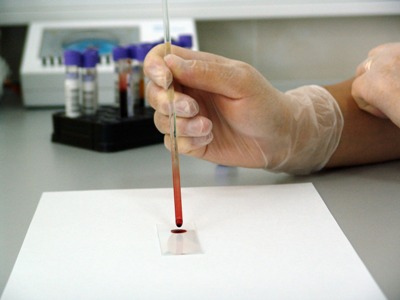
Most women are aware of what it takes to be healthy: eat fruits and vegetables, drink water, get adequate sleep and exercise. These same women will take their children, parents, and husband to the doctor regularly for a check-up. However, when it comes to themselves, they may not be as vigilant.
In this first part of a 3-part series about creating a healthy lifestyle, we will be looking at screening tests—what they do and why they are important.
Routine health screenings are different from diagnostic tests. A diagnostic test is done to find out what is causing certain symptoms. Screening tests are done when a woman feels and looks healthy. They detect diseases at an early stage before any symptoms become noticeable. Early detection of diseases helps to improve quality of life since many complications of disease can be prevented. An example is very early diagnosis of breast cancer, which may only require breast sparing surgery, as opposed to a more radical surgical approach and intensive chemotherapy.
Here are the top screening tests recommended for women:
-
Dental and Oral Screening: Dental health starts with the eruption of the first tooth! Adult women require 2 annual oral checkups with dental cleanings. Being on top of your dental health will make sure that your dentist can spot early signs of decay and treat them accordingly.
-
Blood Pressure Screening: Starting at age 20, blood pressure should be checked regularly every 2 years. The American Heart Association states that the ideal blood pressure is 120/80 mmHg and below. Starting at age 40, or earlier if the woman is obese, the United States Preventive Services Task Force (USPSTF) recommends an annual screening. Blood pressure is usually taken on the upper arm above the elbow with a sleeve-type device that tightens until the blood flow is restricted. As the sleeve is loosened, the rate and character of the blood flow back to the arm is assessed, either with a stethoscope or a machine.
-
Cholesterol Screening: This blood test assesses a woman’s risk for heart disease or stroke. Starting at age 20, a woman should check her cholesterol every 5 years. According to the National Institute of Health, ideal cholesterol levels should be below 200 milligrams per deciliter. If the cholesterol levels come up high, the healthcare provider may request more frequent testing. This test should be done fasting.
-
Blood Glucose Screening: This is a blood test done while fasting which looks for elevated glucose or sugar in the blood. Most healthcare providers will perform these tests for pregnant women in the second trimester or earlier if indicated. Non-pregnant women should get a blood glucose test every three years, beginning at around age 45, to check for diabetes or pre-diabetes. The range for a normal fasting blood glucose test is about 100 mg/dl or lower. The National Institute of Diabetes and Digestive and Kidney Diseases says that a fasting blood sugar blood test of greater than 126 mg/dl means the person is diabetic. If a woman is obese, or has a family history of diabetes, she may want to start earlier than 45 and get screened more often.
-
Colonoscopy/Sigmoidoscopy: This test screens for colon cancer and starts at age 50, unless a problem is found earlier or a woman has a greater risk than the general population. This test can be either a sigmoidoscopy, in which a lighted tube and camera are inserted into the rectum to examine the lower colon, or a colonoscopy, in which a longer tube examines the entire colon. If the results are good, sigmoidoscopies are done every 5 years and colonoscopies are done every 10 years.
-
Mammogram: This test screens for breast cancer. The test itself uses an x-ray machine which compresses the breast in between “plates” so that an x-ray image of the interior of the breast can be checked. There is a lot of controversy about when a woman should start testing. The USPSTF says that a woman should start at age 50 and have one every two years. The American Cancer Society says a woman should start at 45 years old and have a mammogram every year, and then switch to every two years at age 55. Everyone agrees that the risk for breast cancer increases as a woman ages. Important: If a woman has a family history of the disease, or has family members that have tested positive for the BRCA gene, she should talk to her health care provider about starting annual screenings earlier.
-
Bone Density Test: This screening is for osteoporosis, or bones that have lost their density, and is for women aged 65 and above. However, women with risk factors for osteoporosis, such as multiple previous bone fractures or low body weight, should be screened earlier. This test is called a DEXA scan, and the woman lies on a table while a low-dose x-ray machine takes images of her bones. If there is bone loss, she may need more frequent bone density screening.
-
Pap Smear: This test assesses a woman’s risk for cervical cancer. Most medical providers offer this test to women aged 21 and above. The USPSTF recommends this test every 3 years until age 65. This test is performed by a gynecologist, obstetrician or nurse midwife. The cervix is scraped or brushed to remove some cells and examined for changes.
-
Skin Examination: The American Cancer Society recommends women examine their skin for changes monthly, looking for any new moles or changes to existing moles, which can be an early sign of skin cancer. If a woman has a family history of skin cancer, the healthcare provider may require more frequent skin checks.
Some women may choose not to have screening tests, but if you have any worrying symptoms, it is important to take them seriously and have them checked out by your healthcare provider.